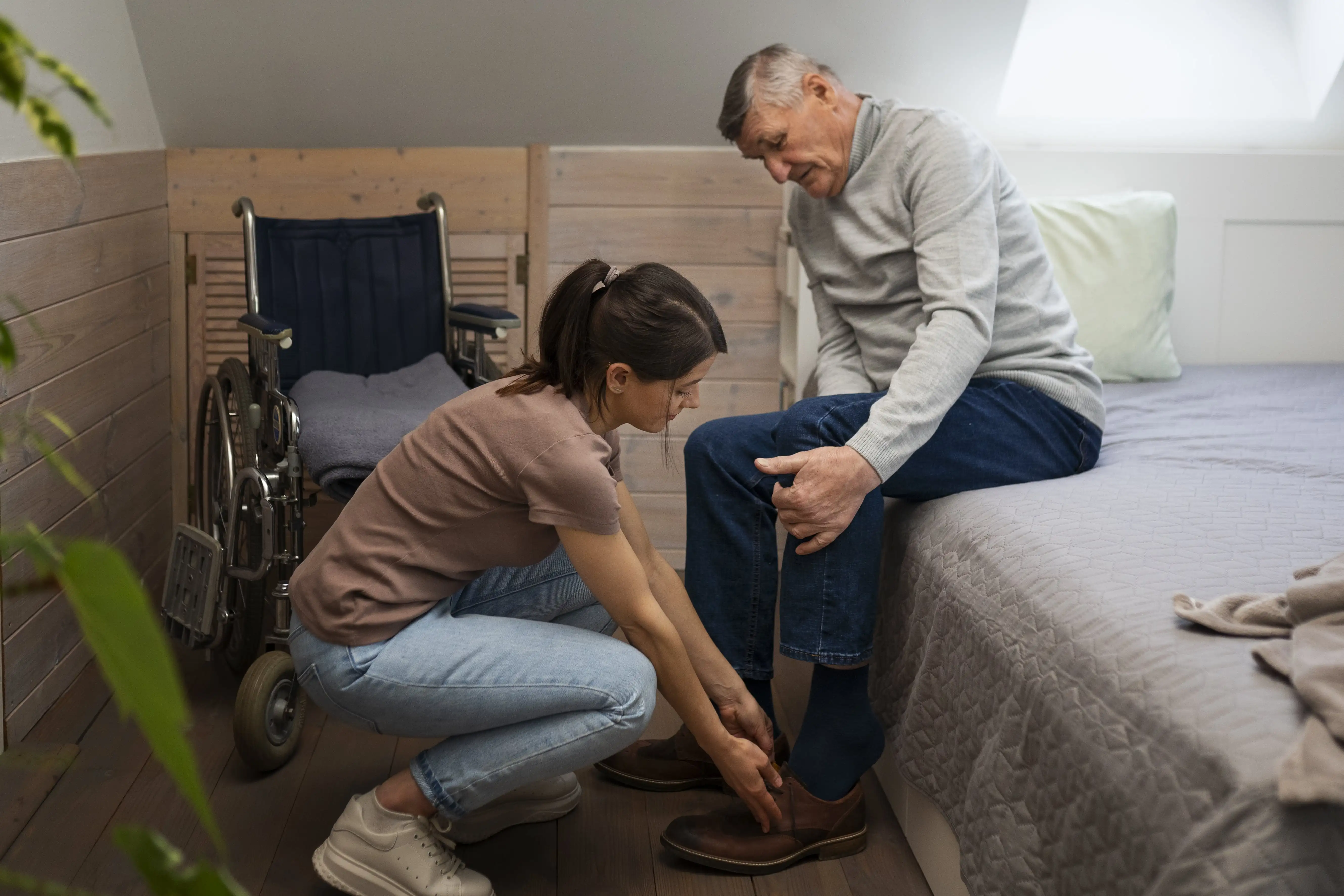Movement disorders are neurological conditions that inhibit or impact the body's everyday movements, such as using hands, walking, sitting, standing, bending, turning, etc. In general, movement disorders lead to abnormal movements or a gradual loss of movement.

There are several types of movement disorders, with some of the most common types including
Parkinson's Disease is one of the most common movement disorders, along with tremors. More than 10 million people have Parkinson's Disease worldwide.
Parkinson's Disease is a neurological disorder that affects the body's movement. It occurs due to deterioration of the nerve cells in a region of the brain called basal ganglia. The basal ganglia, situated in the central portion of your brain, manage the brain's signals to the body's muscles to carry out movements. When the nerve cells in this area get damaged, the brain's signalling is impaired, leading to loss of movement, unintended or uncontrollable movements (shaking, tremors), stiffness, and loss of balance and coordination.
The onset of symptoms is a slow process; over time, they worsen and become more perceptible. The Disease shows a different pace of progression in people, and the early symptoms are mild and gradual.
Among the signs are:
Nerve cell degeneration in the brain's basal ganglia region leads to Parkinson's Disease. The Disease usually affects people in their 60s though in rare cases, it occurs in younger people too.
In a healthy individual, these nerve cells produce dopamine, a critical brain chemical or neurotransmitter that promotes body functions, including movement, mood, and memory. When the impaired nerve cells produce less dopamine, it impacts movement, sharpness of senses, thinking ability, and mental health, manifesting as Parkinson's Disease.
The causes of the nerve degeneration can be:
The treatment goal for Parkinson's Disease is to control or reduce the severity of symptoms.
Occasionally, we experience a twitch, jerk, or a fleeting type of movement issue, but these are random occurrences and do not indicate anything serious. But persistent abnormal movements or loss of movement may indicate the onset of a movement disorder, and the signs may include:
Movement disorders are caused by damage to the brain's nerve cells in the parts that control body movements. Several factors may lead to neurological degeneration, and they include:
The treatment method depends on the type of movement disorder. Because these disorders are due to malfunctioning nerve cells in the brain, drugs are a significant treatment choice to address cell pathology.
The approaches include:
Our highly experienced neurologists treat Parkinson's Disease and other movement disorders using the most advanced methods.
We know every case is different and requires a 100% personalized treatment plan and guidance to improve symptoms, reinstate confidence and help you with the best outcomes.
We know how critical accurate diagnosis is and combine our expertise with state-of-the-art facilities and a multi-disciplinary and integrative treatment approach to ensure you get the most effective and personalized treatment program for Parkinson's Disease and other movement disorders.